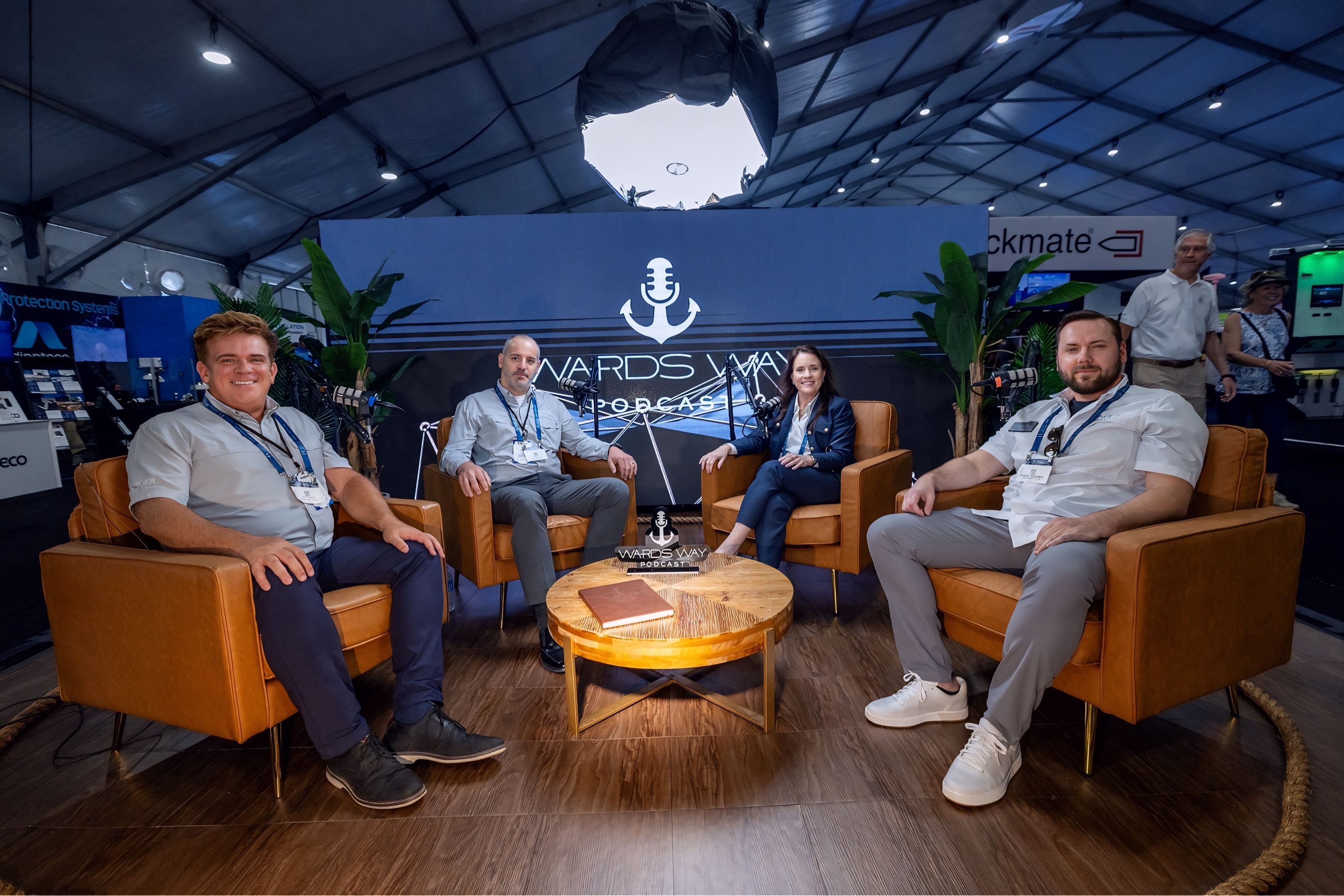
Reimagining Burger Boat: Tradition Meets Bold Growth: Season 5 Episode 3
In Season 5, Episode 3 of the Wards Way podcast, host Kristina Hebert engages in a compelling discussion with Nick Siler, the new CEO of Burger Boat Company; Richard Thompson, the Chief Sales and Marketing Director; and Gabe Boughner, Engineering Manager at Wards Marine Electric. Recorded at the Fort Lauderdale International Boat Show, the dialogue delves into the nuanced interplay between legacy and innovation within the maritime industry.
Burger Boat Company, with its rich 162-year history, is poised for a strategic renaissance as it navigates contemporary challenges and evolving buyer preferences. The conversation is characterized by its straightforward and pragmatic tone. It emphasizes the importance of U.S. craftsmanship while also addressing the impacts of market volatility.
The central theme is the imperative to honor heritage while embedding forward-thinking practices into the company's ethos. This approach entails viewing marketing through a scientific lens, prioritizing the development of talent pipelines, and leveraging insights garnered from both commercial and military sectors to elevate standards in custom yacht design and manufacturing.
A striking thread is the insistence that marketing is not guesswork, but rather a science based on behavioral principles. Understanding where prospects search, what information they trust, and what they refuse to hear shapes growth. Burger’s team frames the buyer journey—awareness, consideration, conversion, loyalty, advocacy—and commits to research-backed decisions rather than gut feel. That mindset shows up in their mantra, “Prescription without diagnosis is malpractice.” Instead of chasing trends, they aim to diagnose needs across segments—custom yachts, commercial vessels, and potential military contracts—then design offerings that meet those needs with precision. It’s a disciplined approach that aligns brand storytelling with measurable outcomes and cleaner sales funnels.
Technology and efficiency take center stage as the group explores electrical systems, battery evolution, hydraulics, and weight reduction. The goal is better performance with less waste, using systems engineering to improve reliability and serviceability. Lessons transfer both ways: military standards push rigor and documentation, while yachting projects push finish quality, ergonomics, and owner experience. This cross-pollination becomes a competitive advantage—process control from defense programs sharpens cost allocation and timekeeping, and luxury craftsmanship refines human-centered design for working fleets. The result is smarter builds that respect budgets, timelines, and operational demands without losing the magic of custom.
Another pillar is talent. The guests and hosts agree the labor challenge is global, not just American. Burger’s youth apprenticeships with local schools create a direct pipeline for joinery, electrical, and systems roles, letting hands-on exposure grow into design, engineering, and leadership. The episode champions the belief that starting with tools in hand yields better engineers and managers who understand constraints on the deck plate. That approach builds a culture of ownership where veteran expertise meets rising curiosity, and continuous improvement feels like a team sport instead of a management slogan. The hockey analogy fits: roles change on the fly, trust matters, and the clock never stops.
The episode also tackles the resurgence of American shipbuilding and the habits that steer projects overseas. The team argues the task isn’t nostalgia but habit-breaking: make U.S. options easier to choose by being visible, consistent, and clear about value. Associations and councils help, but storytelling, proof of performance, and predictable delivery break old patterns. Buyers are asking about domestic content and local partners; it’s on builders and suppliers to meet that interest with credible plans and transparent sourcing. The takeaway is pragmatic optimism—American yards are not just alive; they’re evolving, and the industry’s next growth cycle belongs to teams who pair heritage with research, discipline, and a deep bench of skilled people.
We invite you to engage with the complete episode by streaming it on your preferred platform. We encourage you to contribute to the discussion through comments and consider subscribing for more content.

